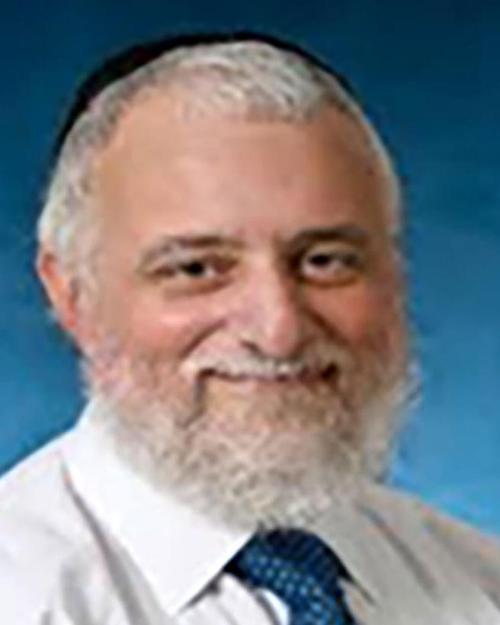Research Lab Results
-
Advanced Optics Lab
The Advanced Optics Lab uses innovative optical tools, including laser-based nanotechnologies, to understand cell motility and the regulation of cell shape. We pioneered laser-based nanotechnologies, including optical tweezers, nanotracking, and laser-tracking microrheology. Applications range from physics, pharmaceutical delivery by phagocytosis (cell and tissue engineering), bacterial pathogens important in human disease and cell division. Other projects in the lab are related to microscopy, specifically combining fluorescence and electron microscopy to view images of the subcellular structure around proteins. -
Albert Lau Lab
The Lau Lab uses a combination of computational and experimental approaches to study the atomic and molecular details governing the function of protein complexes involved in intercellular communication. We study ionotropic glutamate receptors (iGluRs), which are ligand-gated ion channels that mediate the majority of excitatory synaptic transmission in the central nervous system. iGluRs are important in synaptic plasticity, which underlies learning and memory. Receptor dysfunction has been implicated in a number of neurological disorders. -
Jun O. Liu Laboratory
The Jun O. Liu Laboratory tests small molecules to see if they react in our bodies to find potential drugs to treat disease. We employ high-throughput screening to identify modulators of various cellular processes and pathways that have been implicated in human diseases from cancer to autoimmune diseases. Once biologically active inhibitors are identified, they will serve both as probes of the biological processes of interest and as leads for the development of new drugs for treating human diseases. Among the biological processes of interest are cancer cell growth and apoptosis, angiogenesis, calcium-dependent signaling pathways, eukaryotic transcription and translation.
-
William G. Nelson Laboratory
Normal and neoplastic cells respond to genome integrity threats in a variety of different ways. Furthermore, the nature of these responses are critical both for cancer pathogenesis and for cancer treatment. DNA damaging agents activate several signal transduction pathways in damaged cells which trigger cell fate decisions such as proliferation, genomic repair, differentiation, and cell death. For normal cells, failure of a DNA damaging agent (i.e., a carcinogen) to activate processes culminating in DNA repair or in cell death might promote neoplastic transformation. For cancer cells, failure of a DNA damaging agent (i.e., an antineoplastic drug) to promote differentiation or cell death might undermine cancer treatment. Our laboratory has discovered the most common known somatic genome alteration in human prostatic carcinoma cells. The DNA lesion, hypermethylation of deoxycytidine nucleotides in the promoter of a carcinogen-defense enzyme gene, appears to result in inactivation of the gene and a resultant increased vulnerability of prostatic cells to carcinogens. Studies underway in the laboratory have been directed at characterizing the genomic abnormality further, and at developing methods to restore expression of epigenetically silenced genes and/or to augment expression of other carcinogen-defense enzymes in prostate cells as prostate cancer prevention strategies. Another major interest pursued in the laboratory is the role of chronic or recurrent inflammation as a cause of prostate cancer. Genetic studies of familial prostate cancer have identified defects in genes regulating host inflammatory responses to infections. A newly described prostate lesion, proliferative inflammatory atrophy (PIA), appears to be an early prostate cancer precursor. Current experimental approaches feature induction of chronic prostate inflammation in laboratory mice and rats, and monitoring the consequences on the development of PIA and prostate cancer.
-
Lewis Romer Lab
Work in the Lewis Romer Lab focuses on the responses of vascular systems to disease and injury. Using cultured human endothelial cells and fibroblasts from mice that lack expression of the FAK- or Src-family kinases, we’re exploring several topics. These include the effect of inflammatory cytokine on cell adhesion to the extracellular matrix; the role of FAK signaling in inhibiting apoptosis; and the function of FAK- and Src-family kinases in cell-matrix interactions during adhesion and motility. -
Follow the Leader: Specialized Cancer Cells Lead Collective Invasion (Ewald Lab)
Research in the Ewald laboratory starts from a simple question: Which cells in a breast tumor are the most dangerous to the patient and most responsible for metastatic disease? To answer this question, we developed novel 3-D culture assays to allow real-time analysis of invasion. Our data reveal that K14+ cancer cells play a central role in metastatic disease and suggest that the development of clinical strategies targeting these cells will provide novel breast cancer treatments. -
Molecular Mechanisms of Cellular Mechanosensing (Robinson Lab)
The Robinson Lab studies the way in which mechanical stress guide and direct the behavior of cells, including when they are part of tissues, organs and organ systems. -
Michael Matunis Lab
Research in the Michael Matunis Lab focuses on the SUMO family of small ubiquitin-related proteins. We study the covalent conjugation of SUMOs to other cellular proteins, which regulates numerous processes needed for cell growth and differentiation, and which, when defective, can lead to conditions such as cancer, neurodegenerative disease and diabetes.
-
Rao Laboratory
The Rao Laboratory studies the roles of intracellular cation transport in human health and disease using yeast as a model organism. Focus areas include intracellular Na+(K+)/H+ exchange and Golgi CA2+(MN+) ATPases. -
Nicola Heller Lab
Research in the Nicola Heller Lab focuses on the immunobiology of macrophages. Our team explores how these cells impact diseases with an inflammatory element, such as cancer, cardiovascular disease and obesity. Using a variety of techniques, including molecular and cellular biology, biochemistry, mouse models and more, we study the role of IL-4/IL-13 signaling in asthma and allergic disease, as well as the role of alternatively activated macrophages (AAM) in the pathogenesis of allergic inflammation. Currently, we are researching the links between asthma and obesity, with a focus on the roles of gender and race.






